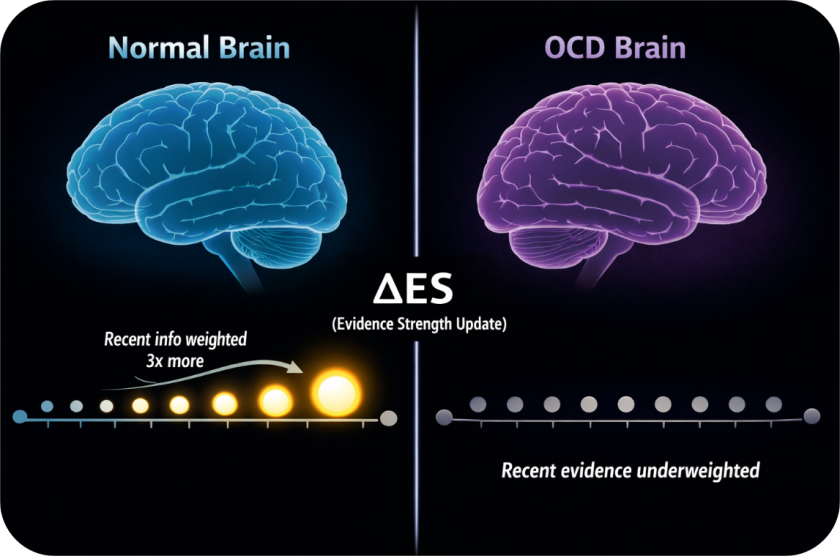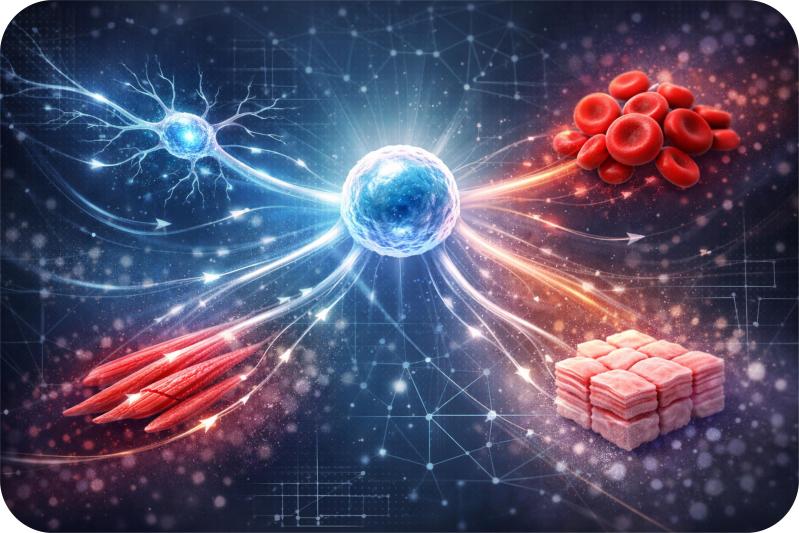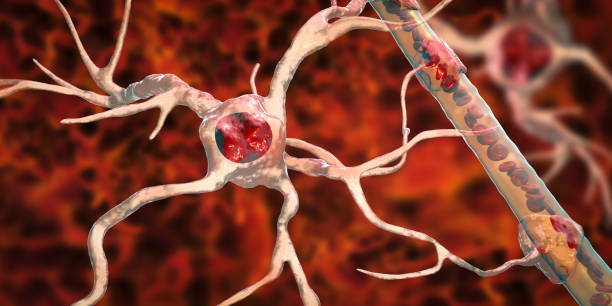
Astrocytes are the non-neuronal cells that provide support and maintenance to neurons in the brain and spinal cord.
They have a star-shaped morphology, with multiple branching processes that extend out from the cell body. They form specialized junctions with blood vessels for regulating the transport of nutrients and other molecules between the brain and the bloodstream.
Astrocytes help neurons make the right connections
A team of neuroscientists led by Dr. Nathan Smith, associate professor of Neuroscience at the Del Monte Institute for Neuroscience explores how astrocytes could be an important marker in the brain’s ability to process external and internal information simultaneously.
Astrocytes are not in direct contact with neurons but are sandwiched between the nerve cells and brain capillaries. These star-shaped glial cells can sense neuronal activity, that is, when neurons send a message or receive an incoming signal.
Furthermore, it has been observed that astrocytes respond to sensory inputs such as light, sound, and touch, indicating that they play a role in sensory processing.
This suggests that astrocytes might contribute to the integration of external and internal information in the brain. And indirectly, responsible for appropriate behavioural and cognitive responses.
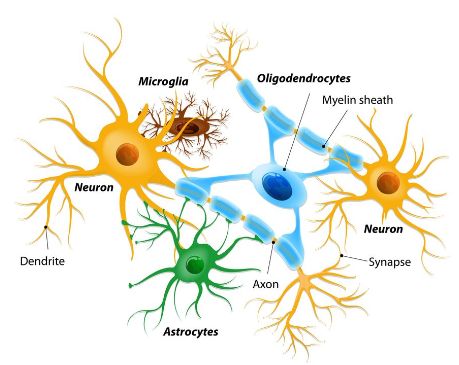
Neurotransmitter release from astrocytes
According to the study, astrocytes have shown to respond to external sensory inputs by modulating their calcium (Ca2+) signaling. This has directly influenced the activity of nearby neurons.
For instance, on receiving the sensory stimuli, there is an increase of Ca2+ levels in astrocytes. Consequently, there is a release of neurotransmitters including glutamate, ATP, and D-serine.
Presence of these neurotransmitters activate the receptors on nearby neurons. Thus, changing their activity and “influencing” their communication with other neurons.
Accordingly, the researchers hypothesized that Ca2+ signaling could be the reason for modulating neuronal communication. And disruption of this signal might promote various neurological and psychiatric impairments like Alzheimer’s and autism spectrum disorder.
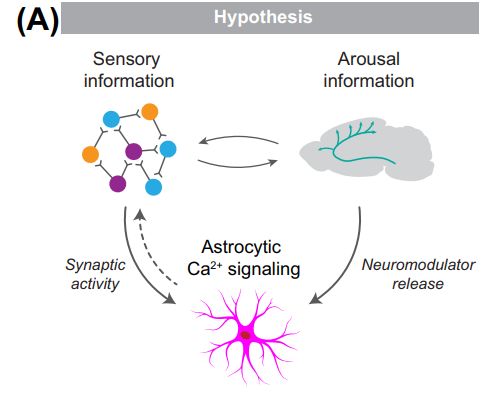
Takeaway
The communication between neurons and astrocytes is quite complex relationship.
Understanding how astrocytes function and regulate the chemical environment around neurons can provide important insights into the mechanisms underlying normal brain function. And, the development of neurological and psychiatric disorders.


